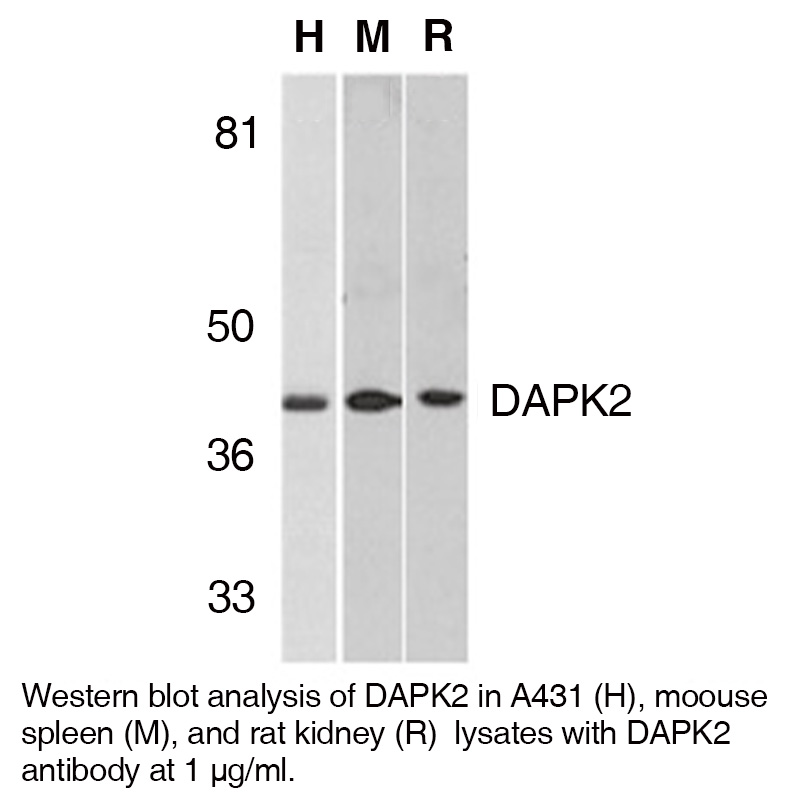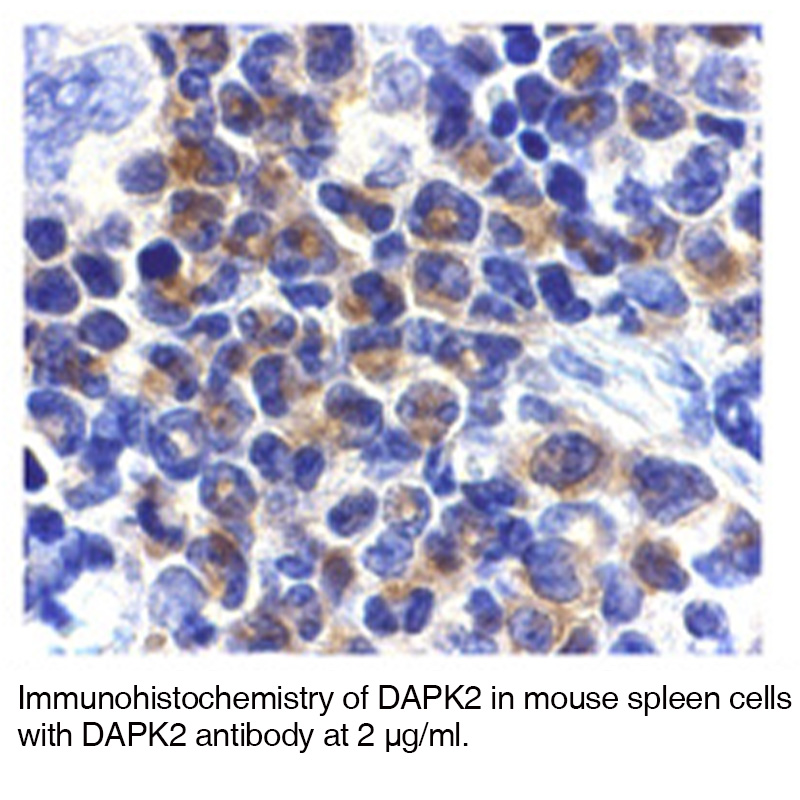Anti-Human DAPK2
Data
- -
- -
Antibody DetailsProduct DetailsReactive Species Human Host Species Rabbit Immunogen PN:D261 Product Concentration 0.5 mg/ml Formulation This polyclonal antibody is formulated in phosphate buffered saline (PBS) pH 7.4 containing 0.02% sodium azide as a preservative. Storage and Handling This polyclonal antibody is stable for at least one week when stored at 2-8°C. For long term storage, aliquot in working volumes without diluting and store at –20°C in a manual defrost freezer. Avoid Repeated Freeze Thaw Cycles. Country of Origin USA Shipping Next Day Ambient RRIDAB_2829910 Each investigator should determine their own optimal working dilution for specific applications. See directions on lot specific datasheets, as information may periodically change. DescriptionDescriptionSpecificity Rabbit Anti-Human DAPK2 recognizes an epitope near the C-terminus of mouse, rat and human DAPK2. This polyclonal antibody was purified using affinity chromatography. Background Apoptosis is mediated by death domain containing adapter molecules and a caspase family of proteases. Certain serine/threonine protein kinases, such as RIP and DAP kinase, are mediators of apoptosis. DAP kinase (DAPK) is pro-apoptotic calcium-regulated serine/threonine kinase containing death domain. Ectopic expression of DAPK induces cell death and suppresses oncogenic transformation. DAPK mediates IFNg induced apoptosis. A novel DAP kinase-related protein was recently identified and designated DAPK2 and DRP-1.1,2 Ectopicly expressed DAPK2 induced apoptosis in various types of cells.1,2 DAPK has high sequence homology to ZIP kinase and DRAK1/2, and they represent a novel family of serine/threonine kinases, which mediates apoptosis through their catalytic activities. The messenger RNA of DAPK2 is expressed in multiple human tissues.1 PubMed References & Citations1. Kawai, T. et al. (1999) Oncogene 18(23):3471-80 2. Inbal, B. et al. (2000) Mol Cell Biol 20(3):1044-54 Technical ProtocolsCertificate of Analysis |




